-
Tips for Preventing Dry Eye Symptoms This Season
Once the cold, dry weather of winter arrives, many people are forced to make changes to keep their eyes comfortably lubricated. If you’re thinking about visiting your eye doctor in Chicago about dry eye treatment, then continue reading to learn what else you can do to prevent dry eye symptoms this season.
While outdoors, dry winter winds can take quite a toll on your eye lubrication, so consider wearing sunglasses during the day and glasses at night when you head outside. Additionally, wearing contact lenses for extended periods of time can lead to dry eye symptoms, so consider favoring your eyeglasses more during the winter and wearing your contact lenses for shorter durations.
Getting enough fluids is important for your overall health year-round but is particularly significant when you want to prevent your eyes from feeling dry and gritty. Also, if you want to avoid dry eye symptoms, then be sure to include plenty of vitamins A, C, and E in your diet this season, as well as foods containing omega-3 fatty acids. Finally, if the air in your home feels dry, run a humidifier as often as necessary to keep your indoor humidity levels within a comfortable range.
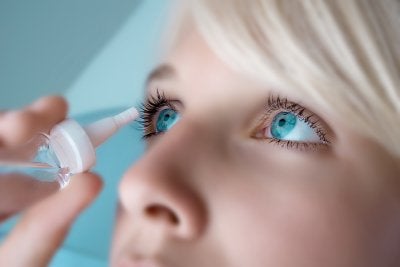
-
A Look at the Connection Between Diabetes and Eye Health
November marks the beginning of National Diabetes Month and Diabetic Eye Disease Month. These health awareness designations are intended to encourage individuals to become informed of their own health risks and the potential consequences of poorly controlled diabetes. In recognition of these designations, take the time to check the date of the last comprehensive eye exam you had at an optical center in Chicago . If it’s been more than one year, it’s time for another visit with your ophthalmologist.
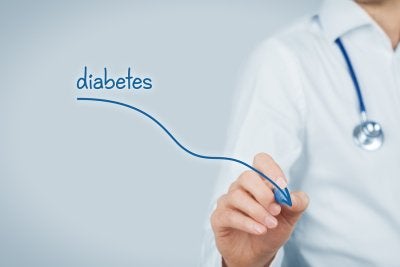
Diabetes
Diabetes is a serious disease that can lead to life-altering and life-threatening complications, including eye health problems. Diabetes occurs when the body can no longer make enough insulin or use insulin properly, which results in high blood sugar levels. Over time, high blood sugar levels can cause all sorts of damage to the body, including to the optic nerve and the tiny blood vessels in the eyes. Unfortunately, many people have diabetes or prediabetes without realizing it. In addition to making regular appointments with an ophthalmologist, consider talking to your family physician about blood glucose screenings.
Diabetic Retinopathy
Practicing good eye care habits is important, but so too is controlling blood glucose levels carefully. Uncontrolled diabetes greatly increases the risk of diabetic retinopathy, which causes the blood vessels in the eyes to swell, leak blood and other fluids, and close off entirely. Abnormal new blood vessels can also form; these do not work properly and they may be accompanied by scar tissue development. If you experience blurry vision or floaters, see your eye doctor promptly.
Cataracts
The lens of a healthy eye focuses light on the retina, which allows for clear vision. If the lens becomes cloudy, it cannot focus light properly and so vision becomes distorted. A cloudy area of the lens is called a cataract. Diabetes increases the risk of cataract development because high blood sugar levels can result in undesirable changes to the lens.
Glaucoma
Glaucoma is a collection of eye diseases that are strongly associated with increased intraocular pressure, or pressure within the eye. These diseases develop as damage is inflicted on the optical nerve. The longer a person lives with diabetes, the higher the risk is of developing glaucoma.
-
Taking Care of Your Eyes as You Age
Did you know that September has been designated as Healthy Aging Month? Its purpose is to remind people that it’s never too late in life to take control of their wellness. One commonly overlooked aspect of aging is its impact on your eyes. Visiting an ophthalmologist in Chicago regularly is important at every stage of life, but it’s particularly crucial as you grow older. Millions of Americans face blindness because of age-related vision changes. Scheduling a comprehensive exam every year with your eye doctor will help you manage your vision health. Not only can your ophthalmologist diagnose problems early on, but he or she can also provide some general eye care tips to help you protect your sight.
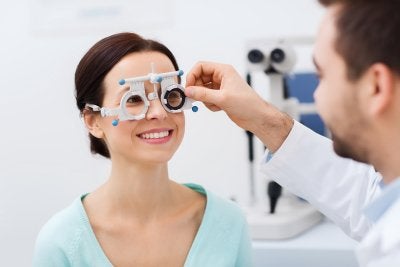
Kick the Habit
Your ophthalmologist might advise you to quit smoking. If you smoke, you should know that the habit directly increases your risk of developing cataracts and age-related macular degeneration. Tobacco use can also indirectly increase your risk of vision problems, such as by making you more susceptible to cardiovascular diseases that affect the health of your eyes. Quitting smoking is hard, but dealing with the health consequences of smoking is far worse. By quitting, you’ll improve the health of everyone around you as well as your own health. If you’re having trouble quitting or you need a little more convincing, your eye doctor may refer you to your primary care physician, who can connect you with appropriate resources in your community.
Pay Attention to Your Diet
When you were younger, you might have consumed sugary sodas and baked goods without a second thought, but the body of an older adult is less forgiving. You may have already realized that eating healthier is better for your energy levels, mood, and cardiac health, but it’s also good for your eyes. Certain foods are rich in the nutrients that your eyes need. These include cold water fish like salmon and tuna, dark green leafy vegetables like kale and spinach, and citrus fruits like kiwi and oranges. Eggs are also good for eye health because they contain lutein and zeaxanthin. These nutrients may offer some protection against age-related macular degeneration.
Manage Your Medical Conditions
If you’re undergoing regular wellness exams at your doctor’s office, then you might already know if you have high blood pressure, abnormal cholesterol levels, or high glucose levels. If so, it’s important to work with your doctor to manage these problems because they can affect your eye health.
-
Understanding Dry Eye Syndrome
Dry eye syndrome is a condition frequently treated by eye doctors. If you are looking for an ophthalmologist to receive dry eye treatment near Chicago, you may have questions about this disorder. Watch this video to understand the nature of dry eye syndrome.
Your eyes have three layers of tears. The reason that most people develop dry eyes is the deterioration of the mucin cells, which make up the bottom tear layer. As you age, these cells can begin to fail, resulting in a reduction of your tear production and a feeling of dryness in your eyes. Eye doctors often recommend artificial tears to provide dry eye treatment for mild cases of this condition.
-
Sunglasses: More than Just Fashion
July is UV Safety Month, which serves to remind individuals of the importance of protecting themselves from the sun’s harmful rays. Ultraviolet (UV) radiation is a type of energy transmitted by the sun. Tanning lamps and tanning beds are also major sources of UV rays. There are three main types of UV rays, two of which can have serious health consequences for people. It’s common knowledge that excessive exposure to sunlight increases the risk of skin cancer, but it’s just as important to protect the eyes from these harmful rays. The next time you visit an optical center in Chicago for an eye exam or LASIK consultation, consider talking to your eye doctor about how you can protect your eyes from UV rays.
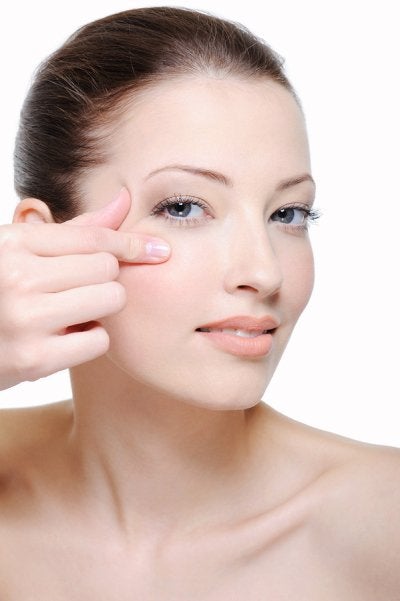
Identifying the Dangers of UV Rays
During UV Safety Month, take a few minutes to learn about the ways unprotected sunlight exposure can harm the eyes. UV rays can damage the eyes in several different ways. They increase the risk of cataract development, which are cloudy areas on the lenses. They can cause photokeratitis, which results in temporary vision loss. UV rays can even increase the risk of macular degeneration, pinguecula (yellow bumps on the eye), and pterygia (disfiguring bumps that cause blurry vision).
Protecting Yourself from UV Rays
It’s commonly thought that protection from UV rays isn’t as important on cloudy days or during the winter. In fact, a significant percentage of UV rays can still penetrate your eyes and skin on cloudy days. Likewise, cold temperatures do not mitigate the effects of UV rays on your eye health. For optimum eye care , your eye doctor is likely to recommend that you wear protective sunglasses every time you go outdoors. A wide-brimmed hat is also a good idea. Choose wraparound-style sunglasses that protect your eyes from all angles. Select a pair that is labeled to offer 100 percent UV protection or ask your eye doctor for recommendations.
Protecting Kids from UV Rays
Children are even more susceptible to eye damage from UV exposure compared to adults. Protect your child’s eyes by encouraging him or her to wear sunglasses that block UV rays. Let your child choose the style and color of sunglasses, provided they are labeled for 100 percent UV protection. Additionally, let your child choose a wide-brimmed hat to wear outdoors for even better protection.
-
What to Do to Prevent Eye Injuries
Eye diseases like macular degeneration aren’t the only problems that can rob a person of his or her healthy vision. Injuries to the eye can occur in mere moments, but they can have life-changing consequences. Residents of the Chicago area can get some eye care tips from their ophthalmologist. Even when individuals take precautions to protect their vision, accidents can occur from time to time. If you’ve suffered an eye injury, seek immediate medical attention.
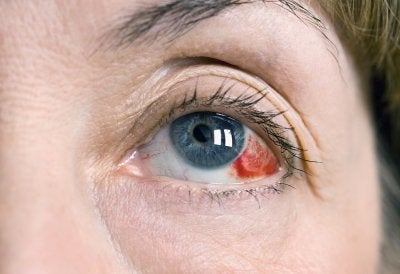
At Work
Work-related eye injuries are entirely too common. When a job exposes employees to hazardous chemicals, airborne debris, and other hazards, employers are supposed to provide proper protective gear, including safety goggles. However, it’s incumbent upon the employee to ensure that he or she follows safety guidelines and wears these goggles as needed. Adequate safety goggles are those that feature side shields. Other protective gear can include face shields , full-face respirators, welding helmets, work screens, and machine guarding. Individuals who wear eye glasses, rather than contact lenses, can consult an eye care professional about getting prescription safety goggles.
At Home
The workplace and the home are the two major places in which eye injuries occur. Eye doctors recommend taking precautions inside and outside the home to protect one’s eyes. Inside the home, some common hazards include cleaning chemicals, grease splatters, certain children’s toys such as projectiles, and tripping hazards. Champagne bottles are another potential hazard. When opening a champagne bottle, always point it at a 45-degree angle away from yourself and everyone else. After you’ve removed the wire hood, place a towel over the entire top of the bottle before twisting the cork out. Outside the home, yard work is often the greatest hazard for eye health. Before mowing the yard, walk over the entire area, removing branches and other potential projectiles. Do not allow children outdoors while mowing or doing other yardwork with power tools. Remember to wear safety goggles.
At the Gym
Thousands of people suffer from sports-related eye injuries each year. Some of those injuries occurred because the patients relied on their regular eye glasses to provide adequate protection. Safety goggles ought to be worn before engaging in certain sports, such as racquetball and basketball.
-
What You Should Know About Glaucoma
Glaucoma is a chronic eye disease that can lead to blindness . It involves damage inflicted on the optic nerve. Although your eye doctor cannot cure glaucoma, he or she can help you learn how to manage it properly. Early detection is critical, so schedule regular eye exams at an optical center in Chicago. Your eye doctor can check for the early warning signs of glaucoma by performing a dilated eye exam, which checks for damage to the optic nerve. The ophthalmologist can also check the pressure in your eye and assess your visual field.
When you visit the optical center, be sure to tell your eye doctor about any changes in your vision. Glaucoma typically causes patients to lose “patches” of vision such as peripheral vision. If you are diagnosed with glaucoma, it’s likely that your ophthalmologist will prescribe medicated eye drops to lower the pressure within your eye and prevent further damage. Some people with glaucoma may need laser surgery to manage intraocular pressure.
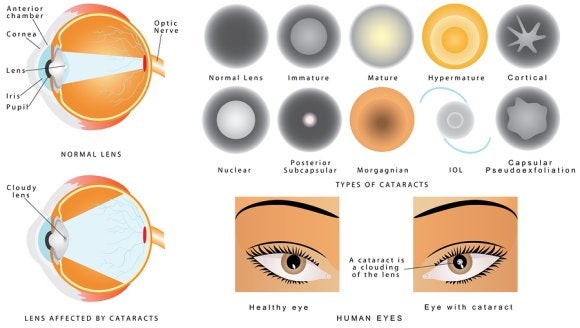
-
Protect Your Eyes in the Sun
You probably already know that wearing sunscreen while outdoors can help protect you from skin cancer. But did you know that the ultraviolet (UV) rays from the sun can also damage your eyes? In fact, your eye doctor may be more likely to diagnose you with age-related macular degeneration if you have excessive, unprotected sun exposure. You might also be more likely to undergo cataract surgery at a clinic in Chicago if you neglect to protect your eyes.
Watch this video and consult your eye doctor for some helpful eye care hints. This video recommends wearing sunglasses every time you go outdoors. Look for shades labeled “UV 400” or “100 percent UV protection.” Pair your sunglasses with a hat and recognize that sun damage can occur even on cloudy and winter days.
-
Spotting Eye Problems in Children
Children need to see an ophthalmologist at a much younger age than many parents realize. The American Optometric Association (AOA) recommends scheduling a trip to the ophthalmologist when an infant has reached six months of age. The next visits with an eye doctor should be scheduled at about the third and fifth birthdays. However, if you notice any potential signs of eye problems in your child, you can schedule a comprehensive eye exam with an ophthalmologist in Chicago at any time.
Appearance
Sometimes, eye problems that occur in children involve visible changes. If your child’s eyes appear to be misaligned, a trip to the ophthalmologist is in order. This could be a condition known as strabismus, or crossed eyes, which requires early treatment. Other visible changes to the eyes can include redness, swelling, and crusting. These are possible signs of an eye infection such as conjunctivitis.
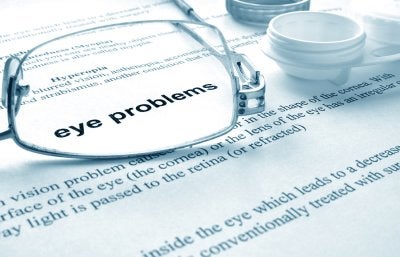
Behavior
If your child is nearsighted or farsighted, he or she may display some atypical behaviors. Your child may hold books or pictures unusually close to or far away from his or her head. You might notice that your child frequently rubs his or her eyes, especially while trying to concentrate on something. He or she may consistently sit too close to the TV. Some children might even close or cover one eye while reading or watching TV. This last symptom may indicate a binocular vision problem.
Academic Progress
Many children are diagnosed with nearsightedness after suffering a setback in academic performance. If your child has suddenly begun to receive poor grades or his or her teacher has noted that your child has not been paying attention in class, it could be time to schedule an eye exam. Kids who cannot see well have trouble reading instructions on the chalkboard. They might have trouble using computers or performing close work. In these cases, vision correction via eyeglasses may be all that is needed to get kids back on track in school.
Symptoms
If your child is old enough to articulate the problems he or she is experiencing, then you may hear him or her complain of dizziness, headaches, or nausea after reading or using a computer. These symptoms may indicate refractive errors. If your child experiences other types of vision problems, he or she may complain of having itchy, painful, or burning eyes. Fortunately, an ophthalmologist can help your child see clearly again.
-
Protecting Your Eyes from Fireworks
Fireworks are an iconic part of summer. Unfortunately, fireworks are as dangerous as they are beautiful. Every year, thousands of patients are seen in emergency rooms across the country because of injuries caused by fireworks. Often, these injuries involve the face. Because eye injuries, other catastrophic injuries, and death can occur from the misuse of fireworks, June has been declared National Fireworks Safety Month. This awareness month, which actually runs through the Fourth of July, was designed to help consumers prevent fireworks injuries. If you plan to ignite fireworks this summer and live in Chicago, follow some basic eye care tips. An ophthalmologist at your local ophthalmology practice can work wonders with modern medical technology, but eye injuries caused by fireworks can cause permanent damage and vision loss.
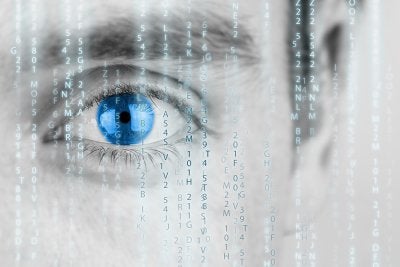
Reconsidering the Use of Fireworks at Home
The only safe way to enjoy fireworks is to view a show put together by professionals. Enjoy the fireworks display from behind the safety barriers at a distance of at least 500 feet.
Using Appropriate Safety Gear
If you do plan to use fireworks at home, check your local laws first to be sure they are legal in your area. Then, purchase safety glasses for everyone who will be handling the fireworks. Your ophthalmologist can recommend an approved type of safety glasses. Keep a bucket of water nearby and have access to a garden hose.
Igniting Fireworks as Safely as Possible
Never allow children to ignite, handle, or come near fireworks. This includes sparklers, which can burn at about 2,000 degrees Fahrenheit. This temperature is hot enough to melt certain metals. When an adult is ready to light the fuse, he or she should avoid placing any part of the body over the fireworks device. Instead, the adult should hold the lighter out at arm’s length away from the body to light the device. Immediately upon ignition, the adult should back away quickly. Alcohol should never be consumed before or during the handling of fireworks. Furthermore, adults should never attempt to re-light a “dud” firework. Instead, wait 20 minutes and then soak it in water.
